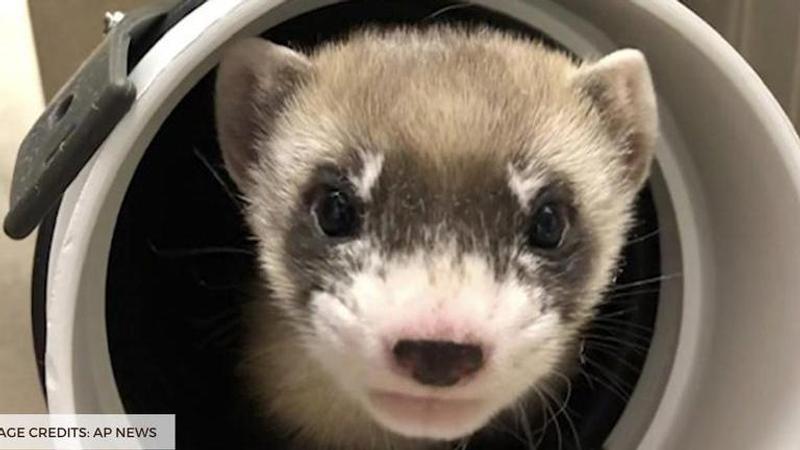Published 20:03 IST, February 19th 2021
Scientists successfully clone first US endangered animal; named it Elizabeth Ann
Scientists successfully clone first US endangered animal; named it Elizabeth Ann. Here is more information about the animal, read on to know.

On December 10th, 2020, scientists cloned the first U.S. endangered species and named it Elizabeth Ann. The black-footed ferret was duplicated from the genes of an animal that died over 30 years ago. However, unlike the domestic ferret foster who carried the Ann, she is wild at heart.
Scientists successfully cloned black footed ferret
A report by Associated Press reveals that Elizabeth Ann is born and is being raised at a Fish and Wildlife Service black-footed ferret breeding facility in Fort Collins, Colorado. The U.S. Fish and Wildlife Service black-footed ferret recovery coordinator Pete Gober told the media portal, “You might have been handling a black-footed ferret kit and then they try to take your finger off the next day. She’s holding her own”. Reportedly, Black-footed cloned ferret are a type of weasel that is easily recognised by dark eye markings that resembles a robber’s mark.
The animal is charismatic and nocturnal by nature and feeds exclusively on prairie dogs. It lives in the midst of the rodents’ sometimes vast burrow colonies. The media portal reports that much before cloning, the black footed ferrets were a conservation who were thought extinct. They were victims of habitat loss as ranchers shot and poisoned off prairie dog colonies that made rangelands less suitable for cattle.
Read Also | Milind Soman Replies To Fan Who Asks Him To Recreate Beach Running Picture In Cold Weather
Scientists collected the remaining population for a captive breeding program that has released thousands of ferrets at dozens of sites in the western US, Canada and Mexico, reports the media portal. Reportedly, cloning can eventually bring back extinct species such as the passenger pigeon. Moreover, the technique holds promise for helping more endangered species including a Mongolian wild horses. It was cloned and last summer was born at a Texas facility. A lead scientist told the media portal, “Biotechnology and genomic data can really make a difference on the ground with conservation efforts”.
The media portal reports that a lack of genetic diversity prevents an ongoing risk. Reportedly, all ferrets reintroduced so far are the descendants of just seven closely related animals who have genetic similarity. Reportedly, they make today’s ferrets potentially susceptible to intestinal parasites and disease such as sylvatic plague.
Updated 20:03 IST, February 19th 2021



